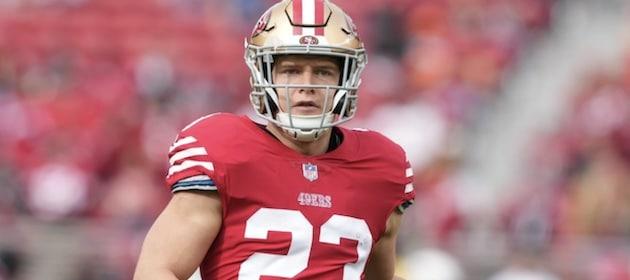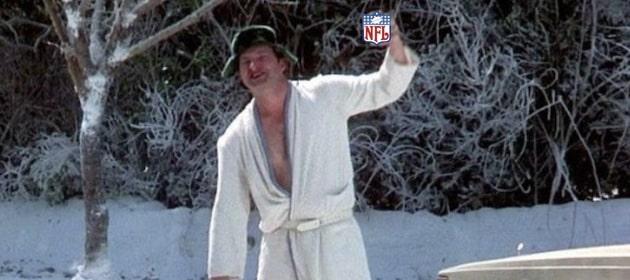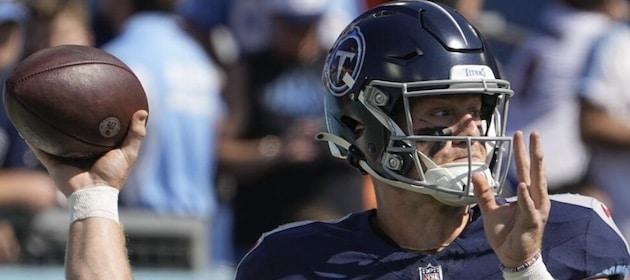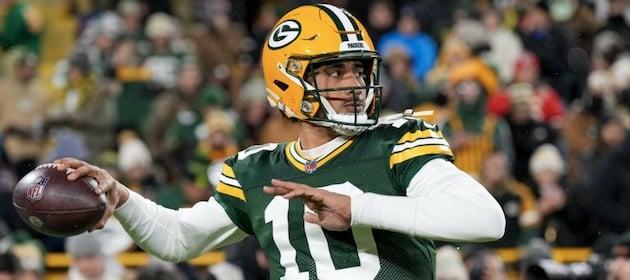How does the presence of an elite scorer affect each NBA team’s performance this season? This is the topic for analysis in KP’s latest edition of NBA Power Rankings at The Wife Hates Sports.
As discussed in a Power Rankings post back in January, the NBA has seen a significant spike in scoring this season, with a hefty portion of that offense coming from the Western Conference.
Individual talents are basking in the spotlight, too, specifically Kevin Durant, who continues to lead the NBA in scoring, averaging 31.6 points per game heading into Tuesday’s games. LeBron James, fresh off his career best 61-point effort against Charlotte, is currently ranked third in the league.
But is the presence of an elite scorer necessary for a team’s success? Does having someone who can score in bunches, or one guy to hit a clutch shot, an absolute necessity?
Let’s take a statistical dive into that question, by providing a loose term to “elite scorer”, in this instance, those players that average 20 points or more per game. That happens to calculate to the top 20 scorers in the NBA, as of Tuesday, March 4th. It should be noted that the list consists of qualified players only, and does not include the likes of Russell Westbrook, who is averaging 21 points per game, but has only played in thirty games.
In my latest NBA Power Rankings, it’s a four-way battle for first, between the Oklahoma City Thunder, Miami Heat, Indiana Pacers and San Antonio Spurs. Accompanied with the rankings, are the twenty current “elite scorers” at this point in the season, followed by some quick analysis:

Kevin Durant leads the NBA in scoring, averaging over 31.6 points per game
KP’s NBA Power Rankings: March 4, 2014
* Games and statistics include results up to 5pm on March 4, 2014
1. Oklahoma City Thunder (128 points)
Kevin Durant (31.6 ppg)
2. Miami Heat (128 points)
LeBron James (27.5 ppg)
3. Indiana Pacers (125 points)
Paul George (22.6 ppg)
4. San Antonio Spurs (124 points)
5. Houston Rockets (94 points)
James Harden (24.5 ppg)
6. Portland Trail Blazers (93 points)
LaMarcus Aldridge (23.7 ppg)
Damian Lillard (21.2 ppg)
7. Los Angeles Clippers (92 points)
Blake Griffin (24.2 ppg)
8. Golden State Warriors (76 points)
Stephen Curry (24.1 ppg)
9. Toronto Raptors (72 points)
DeMar DeRozan (22.9 ppg)
Rudy Gay (20.3 ppg – 18 games with Toronto, 36 with Sacramento)
10. Phoenix Suns (60 points)
Goran Dragic (20.6 ppg)
11. Dallas Mavericks (60 points)
Dirk Nowitzki (21.5 ppg)
12. Memphis Grizzlies (60 points)
13. Chicago Bulls (51 points)
14. Washington Wizards (48 points)
John Wall (20.0 ppg)
15. Minnesota Timberwolves (39 points)
Kevin Love (26.6 ppg)
16. Brooklyn Nets (33 points)
17. Charlotte Bobcats (16 points)
Al Jefferson (20.9 ppg)
18. Atlanta Hawks (-4 points)
19. Cleveland Cavaliers (-12 points)
Kyrie Irving (21.5 ppg)
20. Denver Nuggets (-13 points)
21. Detroit Pistons (-13 points)
22. Sacramento Kings (-24 points)
DeMarcus Cousins (22.3 ppg)
Isaiah Thomas (20.6 ppg)
Rudy Gay (20.3 ppg – 36 games with Sacramento, 18 with Toronto)
23. New Orleans Pelicans (-26 points)
Anthony Davis (20.1 ppg)
24. Los Angeles Lakers (-29 points)
25. New York Knicks (-29 points)
Carmelo Anthony (28.0 ppg)
26. Boston Celtics (-29 points)
27. Utah Jazz (-33 points)
28. Orlando Magic (-52 points)
29. Philadelphia 76ers (-70 points)
30. Milwaukee Bucks (-72 points)
Nine of the top ten teams feature a player that is averaging more than 20 points per game, and eight of the league’s top ten scorers all play for teams that land in one of these spots. Only Carmelo Anthony and Kevin Love play for teams that are ranked lower.
The one top-notch team that doesn’t feature an elite scorer is the Spurs, who still have veterans Tony Parker and Tim Duncan, each averaging fewer than 18 points per game.
The Sacramento Kings appear to be the exception to the rule, featuring three players that average more than 20 points per game. Yet, the Kings are just 21-39 on the season. Interestingly enough, no one else on Sacramento’s roster averages in double figures.
Only three teams in the bottom ten – the Knicks, Pelicans and aforementioned Kings – feature players that crack the league’s top 20 in scoring.
Prior to plotting this out, I was a firm believer that an overall team effort, headlined by a few solid stars, could get the job done. But judging by these stats alone, it’s pretty obvious that to compete in the league as it is currently structured, a team needs to feature at least one elite scorer.
The Spurs, as always, are the exception to the rule.
Where do you stand on the subject?
* All stats per NBA.com
The Wife Hates Sports NBA Power Rankings system has a method to its madness, attempting to be different and not just rank by popularity and record. It mixes a secret formula of six completely different categories, meshed into a points system. The categories don’t just include team results regarding record, but how each team has performed recently, as well as incorporating some statistics on both a team’s offense and defense.






That’s true, the NBA really only focuses on its stars… though there was a little bit of team involved when the Big 3’s were around there… but again, still was focused on just those guys and the fact they were stacked.
Top….
That’s true, it was right there for San Antonio to take it, and they failed to do so. I remember being really frustrated by that, actually, because I was rooting for the Spurs. I don’t have vested interest in either team, but sometimes, it’s just easier and more fun to root against LeBron.
Otherwise, I’m not usually a fan of the cliche that a team “wants it more”…
REV– As painful as it is to say it (because of Dwight), Houston is playing great ball. They have that typical lineup of a title team… elite scorer, plus a physical big man. It’s a loose comparison, very loose… but it almost makes me think of the whole Kobe-Shaq combo years back.
TOP– It’s funny you bring up consistency, because really, to me, the Heat are NEVER a consistent team during the regular season, while the Spurs seem to be a steady rock for years and years… yet, who won the title last year?
I’m still sticking with a Heat Three-Peat, man.
Houston’s playing great ball as of late though. They’re gonna be a tough out in the West.
Whoever makes it to the Finals from the West will be worn out while the Heat’s only challenge will be Indiana and they’ve been struggling lately.
TOP- I would have to check my spreadsheet to see exactly why the Bobcats fall where they do… but when I glanced up at the list, the Hawks are below them, but not really any other playoff teams. They do get a boost off being a playoff team.
Who do you have at the first pick in the upcoming draft?
Excellent additional food for thought, REV. Duncan is definitely not an elite scorer, though he can put on a show on some nights. He’s just that hard-working overall, HOF kind of guy that finds a way to carry a team.
I would agree, that with the additional scoring, as I pointed out in the previous post… it appears to be more of a need in recent years.
Now, with all this in mind, who are you predicting to go to the Finals and win this season?
KP
I’m sorry , but I wouldn’t have the Bobcats that high . In the space of six weeks two players (‘melo 01/24 & LBJ 03/03) have dropped sixty points apiece on that defense that is truly ….. overrated !
Your thoughts on Kareem becoming a possible minority stakeholder with the Bucks ? I believe that within the next two years team owner , Herb Kohl will seek to sell the franchise and that is why he’s exploring the interest of vested parties seeking to invest in the team , e with a view to keeping them in Milwaukee long-term and not have them relocate !
tophatal ……………..
Interesting food for thought, KP.
Before I answer (I’m still trying to determine whether or not a team NEEDS an elite scorer), I thought I’d take a look back at previous champions.
We know that in the NBA, more than any other American professional sports league, star power is key.
The last five NBA champions have had elite scorers by your definition. LeBron, LeBron, Dirk, Kobe, Kobe.
But before that you have the Celtics, who were led that year in scoring by Paul Pierce (19.6 ppg). The year before that, you had the Spurs who were led in scoring by Timmy D, at 20 ppg. While being great, I don’t know that anyone would ever refer to Tim Duncan as an “elite scorer.”
So what does this tell us? The modern game may be changing and hey, scoring is important. After all, you have to score more than your opponent to win ball games.
But I’m not entirely convinced a team NEEDS an elite scorer to win a championship. There just happens to be a lot of guys out there right now that can score.
Does that guarantee a title?
I guess we’ll find out in a couple of months.